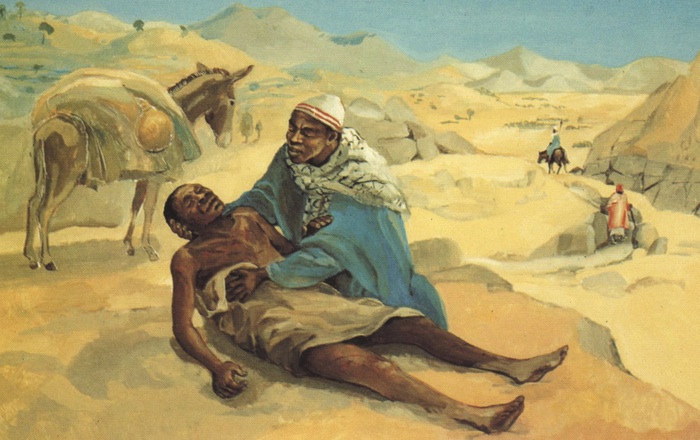Commentary on Colossians 1:1-14
This text seemingly consists of the rather mundane opening of Paul’s letter to Christians living in the town of Colossae.
There is more at work in the text, however, than one might gather from an initial, cursory reading.
First, the majority of Pauline scholars do not think Paul wrote Colossians but that it was written after his death by one of his followers in an attempt to have Christ’s apostle speak from beyond the grave. The dating of the letter would be sometime between 65-75 CE. Second, the town of Colossae (located in modern day western Turkey about 120 miles inland from the Aegean Sea) was destroyed in an earthquake around the year 61 CE and was not rebuilt. Thus it is likely that the identities of both the author and the audience of this letter are pseudonymous. Third, as the argument of the letter progresses it becomes clear that its recipients have been exposed to alternative teachings which claim that their original belief in the gospel was inadequate and that only through special knowledge, ecstatic experiences, and certain ascetic practices will they be able to experience fully a relationship with God.
From the opening of the letter onward the author is seeking to assure the letter’s recipients that they already are in a relationship with God in which they have fully experienced the gifts of divine salvation so that they are being divinely empowered to live God pleasing lives through their moral character and conduct.
Indeed, the recipients’ self-identity is already being shaped in the second verse of the letter as the author identifies them as holy and faithful brothers and sisters in Christ (an identity not fully conveyed in some English translations such as the NRSV). Having a holy familial identity means that God has claimed them to be God’s children and so they conduct their lives in ways that reflect their God-claimed reality; faithful entails steadfast service to God as is modeled by such faithful servants as Epaphras (1:7), Tychicus (4:7), and Onesimus (4:9).
In the cosmology of Colossians, “in Christ” refers to existence in the realm or reality which is both defined and ruled by Jesus Christ. The phrase “in Christ Jesus” is similarly used in 1:4 not to present Christ as the object of their faith but again to depict the sphere in which their faith and love are lived out (again something not fully conveyed in many English translations).
Colossians 1:3-8, a single protracted sentence in Greek, presents the letter’s opening thanksgiving in which the author thanks God as he regularly prays for the recipients even though he has never met them directly but knows of them through Epaphras from whom they have learned the gospel (1:7-8). In fact he does not just know about them, he especially knows of their faith and love which is grounded in the hope stored up for them in heaven (1:4-5).
Here hope is being established as an eschatological reality already existing in heaven for the recipients (also 1:23,27) so that they will not need to engage in the esoteric practices or vision quests as some have taught them. Instead that which they truly need and believe they had previously heard in the gospel, which is the word of truth. The fact that the gospel has not only come to the recipients but has gone out to the entire world as an open, universal proclamation (1:5-6) is another way the author is undercutting the subsequent mystical teaching to which the recipients have been exposed.
In 1:9-14 the author continues to instill in the recipients an understanding that they have already received what they truly need from the very first time they heard the gospel. The author’s prayer for them in 1:9 does not mean that they are somehow lacking in knowledge of God’s will. Rather building on what he has already said about their bearing-fruit and growing as a result of the gospel and the understanding of God’s grace it brings (1:6), the author is directly connecting the reality that the gospel has created in their lives with the way they now conduct their lives on a daily basis. Knowledge of God’s will, then, does not involve some secret understanding imparted only to a few privileged initiates.
Rather, knowledge of God’s will involves engaging in God-pleasing conduct as part of our daily fruit-bearing and growing (repeated in 1:10 from 1:6). Unfortunately when we hear terms in 1:10 such as living “worthy of the Lord” or “pleasing to him” (i.e., the Lord) or “in every good work” we tend to regard such actions as works righteousness whereby we are trying to achieve God’s favor. Our author has just the opposite in mind in that he understands knowledge of God and God’s will which comes through the universal gospel as the means by which we are empowered to reflect God’s will in our ongoing actions, attitudes, and values (1:11). Thus we live lives pleasing to the Lord precisely because we are completely attuned to God’s will for us.
The divine initiative which determines our lives and reality is clearly on display in 1:12-14 wherein we give thanks to God the Father for the series of actions God has instituted for us in and through God’s beloved Son. God has qualified us to share in the inheritance of the saints in light (1:12 recalling the hope laid up in heaven in verse 5) because God has rescued us from the realm of darkness in which we had originally lived (1:13). This divine rescue from one realm has resulted in our transferal into another realm, the kingdom of God’s beloved Son since it is in the beloved Son that we have liberation that is the forgiveness of sins (1:14).
Thus in the letter’s opening the author of Colossians has anchored the audience’s past, present, and future in God’s salvific activity in Christ. We are no longer imprisoned in darkness. We now experience the liberating effect of forgiveness as well as understand and enact God’s will through our conduct. We have been promised a future inheritance that already exists for us in heaven because we have been made God’s holy people.


July 14, 2013